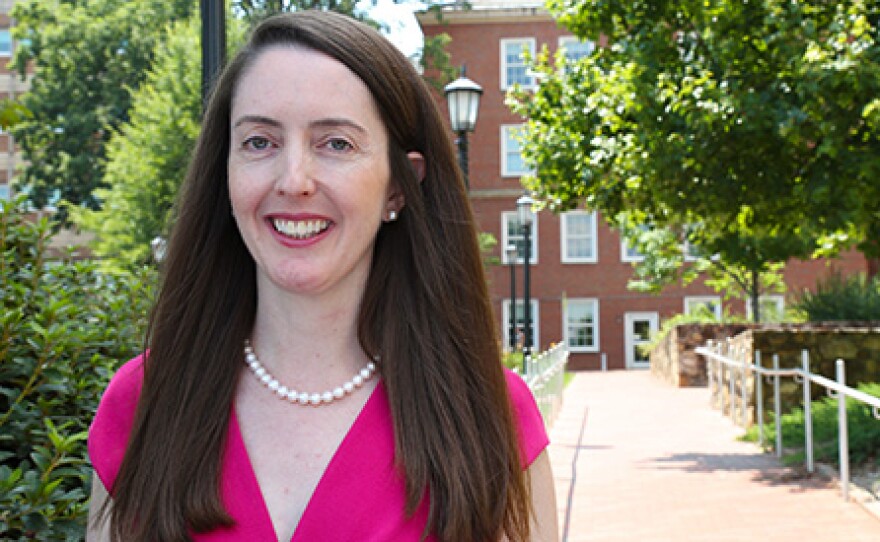When Melina Kibbe took the helm of the department of surgery at the University of North Carolina School of Medicine in 2016, she was only the 15th woman in the country in that role. Beyond carving a path as a woman in a top spot in the medical world, Kibbe is also on a mission for sex equity in research.
As a young doctor in Chicago, she first learned that while women metabolize drugs differently than men, a majority of surgical drug research is conducted on male cells or male animals.This can lead to dangerous consequences for women.
Kibbe speaks with host Frank Stasio about her dedication to making drugs safer for women and her work developing new vascular surgical technologies. She also shares how her childhood experiences negotiating her parents’ divorce instilled a sense of independence; and how her interactions with an orthopedic surgeon who fixed her scoliosis set her on the path to becoming a surgeon. In addition to her role in the UNC School of Medicine, Kibbe is also editor-in-chief of the journal JAMA Surgery and a member of the National Academy of Medicine.
Interview Highlights
Melina Kibbe on going through her parents heated divorce:
My mother was granted sole custody of all three of us children. The challenging part was that both of my parents really loved us and both of my parents wanted us. And so that then set up what became, I mean, almost comical and you could write a movie on it ... One summer between my first grade and second grade, for some reason my dad decided to not return us, and next thing I know … My dad's enrolling me in second grade in Knoxville, Tennessee. So I start making some new friends, and one day a couple months into second grade, I was at the dentist's office, and I just remember all this hysteria going on. What had happened is my mom with a friend had flown to Tennessee and kidnapped my brother and sister out of the hands of the babysitter ... And then about a couple weeks after that, mysteriously my dad goes on a business trip and comes back with my brother ... The courts put a stop to it. And the courts apparently told both of my parents if there is anymore kidnapping they would both go to jail.
On how she decided to become a surgeon:
I had an orthopedic surgeon who put a Harrington rod into my back. And it's a long stainless steel metal rod that's attached to just below my neck, and it goes all the way down to about my waist and basically [they] use that to straighten the spine ... When people ask me why am I a surgeon, I can very clearly say it's because of this incident. I thought the world of this surgeon, and I wanted to be just like him. And I wanted to do what he did. I wanted to be able to fix people.
On experiencing ‘subconscious bias’ in medical school:
There was another medical student who wanted to go into surgery in my year, and it really came down to, you know, him and I were the two most eager and interested in surgery. But he was the bow tie-wearing male who of course got invited to hang out with the surgeons, could go into the locker room etc. I was the female. And I remember really trying to prove myself to many of the surgeons [at University of Chicago]. And then one day when I was interviewing [for] residency positions, one of the surgeons that I was trying to prove myself really hard to had my CV, my curriculum vitae, in front of him and literally said to me: Melina, wow you're very accomplished. Had I known … So that was really an important moment for me, because it really showed the subconscious bias.
On discovering how drugs and therapies work differently for men and women:
The therapy that I had been working on for almost a decade … I then went and tested it in the female rats only to find that it didn't work at all. And I had to increase the dose tremendously higher for me to see the same efficacy in the females as the males. So that was my light bulb moment, because I had been spending my entire career developing this therapy, and I never even had the forethought to ask: Does it work equally in both sexes?




